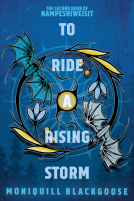
Novel Subjects
Authorship as Radical Self-Care in Multiethnic American Narratives
by Leah A. Milne
This title was previously available on NetGalley and is now archived.
Send NetGalley books directly to your Kindle or Kindle app
1
To read on a Kindle or Kindle app, please add kindle@netgalley.com as an approved email address to receive files in your Amazon account. Click here for step-by-step instructions.
2
Also find your Kindle email address within your Amazon account, and enter it here.
Pub Date Jul 01 2021 | Archive Date Jul 01 2021
University of Iowa Press | University Of Iowa Press
Talking about this book? Use #NovelSubjects #NetGalley. More hashtag tips!
Description
LITERARY CRITICISM
How does contemporary literature contend with the power and responsibility of authorship, particularly when considering marginalized groups? How have the works of multiethnic authors challenged the notion that writing and authorship are neutral or universal?
In Novel Subjects, Leah Milne offers a new way to look at multicultural literature by focusing on scenes of writing in contemporary works by authors with marginalized identities. These scenes, she argues, establish authorship as a form of radical self-care—a term we owe to Audre Lorde, who defines self-care as self-preservation and “an act of political warfare.”
In engaging in this battle, the works discussed in this study confront limitations on ethnicity and nationality wrought by the institutionalization of multiculturalism. They also focus on identities whose mere presence on the cultural landscape is often perceived as vindictive or willful. Analyzing recent texts by Carmen Maria Machado, Louise Erdrich, Ruth Ozeki, Toni Morrison, and more, Milne connects works across cultures and nationalities in search of reasons for this recent trend of depicting writers as characters in multicultural texts. Her exploration uncovers fiction that embrace unacceptable or marginalized modes of storytelling—such as plagiarism, historical revisions, jokes, and lies—as well as inauthentic, invisible, and unexceptional subjects. These works ultimately reveal a shared goal of expanding the borders of belonging in ethnic and cultural groups, and thus add to the ever-evolving conversations surrounding both multicultural literature and self-care.
Advance Praise
“Milne offers a bold intervention in the field of contemporary American literature: a defense of multiculturalism at a time when it seems to have been largely abandoned except in corporate circles. When so much of American political discourse seems to be beholden to a resurgent anti-immigrant ethnonationalism, such a defense is welcome.”—Min Hyoung Song, author, The Children of 1965: On Writing, and Not Writing, as an Asian American
“The themes Milne engages are quite important to American literature, contemporary fiction, multiethnic literature, and ethnic studies—there aren’t enough works that engage with contemporary ethnic American literature, especially when thinking through issues of narratology and intersectionality. Studies and comparative analyses of this kind are the most innovative in the field and are what students are looking for.”—Jennifer Ho, coeditor, Narrative, Race, and Ethnicity in the United States
Available Editions
| EDITION | Other Format |
| ISBN | 9781609387624 |
| PRICE | $90.00 (USD) |
| PAGES | 258 |
Links
Average rating from 4 members
Featured Reviews
"...the authors described here have moved beyond the postmodern question of whether the metaphorical or empirical author has died or has returned; the emphasis on the ghostliness of the author actually makes the question immaterial. Contending directly with that ghostly presence means explicitly sharing the role nd powers of authorship with readers themselves." - From Novel Subjects
4 stars
A dense novel rich with numerous other works cited to explore authorship in relation to self-care, which is defined here as an "act of politcal warfare". The synopsis skips over that she is largely examining metafiction, not general fiction, as it may lead you to believe. The author's discussion is a rich landscape to wade through- both in how many books she references, along with word choice and prose. I had to stop many times not only to think about certain statements defining meaning, but also to read some of the work I was unfamiliar with. There is a certain assumption that takes place in a few instances that you are familiar with the work cited. The sort of sesquipedalian composition is worth going through- Milne has an abundance of important notes to make on the institutionalization of multiculturalism. While I don't believe it is fully accessible to the average person having no previous knowledge in some of the subject matter, I can easily envision this work being included on the syllabus of many graduate studies.
Thank you to NetGalley, the author, and the publisher for an ARC in exchange for an honest review.
Leah A. Milne offers much in terms of thinking through storytelling and representation. An insightful look at storytelling and characterization, with a host of texts considered, and a highly recommended resource for conversation and study.
Readers who liked this book also liked:
L.M Montgomery
Children's Fiction, Comics, Graphic Novels, Manga, Teens & YA
Gertrude Chandler Warner
Children's Fiction, Comics, Graphic Novels, Manga



